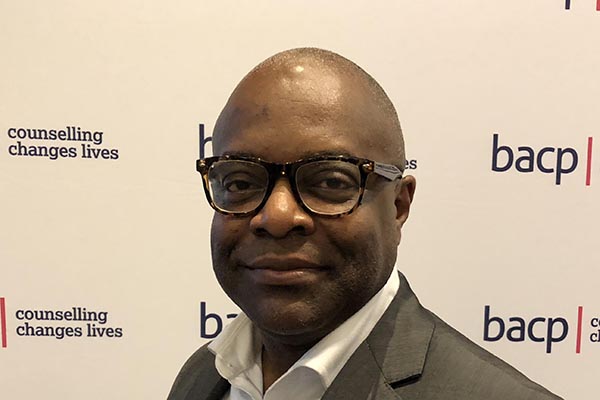The knife crime epidemic sweeping Britain’s streets; the impact of austerity on families’ everyday lives; the latest figures showing the scale of homelessness across the country.
For some people, these are just subjects they read about in the news.
For others, they are social issues that have a profound impact on their daily lives – including on their mental health and emotional wellbeing.
How social justice affects people’s everyday lives is something we can’t ignore, said BACP President David Weaver.
He spoke about his belief in the importance of social justice, ahead of our first collaborative conference looking at how the same issues affect the UK, USA and Ireland in October.
“For me, social justice is all about ensuring that everybody in society is able to live equally to others.
"It’s about, in a very direct way, highlighting and tackling the injustices which are often at the root of the issues faced by our clients within the counselling professions” he said.
“We have to look at these issues and understand how they impact an individual. Whenever a counsellor meets a client, we should not just be interested in what’s going on for the individual, but also what’s impacting what they are doing and thinking about.
“Far too often we’re only talking about the symptoms.”
He used examples such as the impact that the fear of knife or gun crime has on children and how the normalisation of this culture of violence can impact on the emotional and mental health of the child.
David argued that there needs to be a public health approach to addressing these issues and that counsellors and psychotherapists need to be central to this.

BACP President David Weaver
He spoke about the importance of understanding cultural issues and the need for us to arrive at more definitive outcomes and actions relating to why certain communities are impacted more than others when it comes to depression or suicide.
And he talked about the stigma that can surround drug misuse, which can stay with someone recovering from drug addiction for the rest of their lives.
“Everybody has the right to equality and a right to the services that can make a profound and meaningful difference to their lives,” he added
“In a counsellor’s role an awareness of these social justice issues is absolutely critical. It’s important to understand, and to see how it informs the work we do. It’s not right just to stigmatise.
“Social justice frames what counsellors do.”
David believes the counselling profession can play its part in promoting the aspiration of social justice, when people often face a reality of social injustice.
He's not just talking about how counsellors and psychotherapists view their clients, but in how the profession works together too.
“I think we underestimate our role,” he said.
“We can become too insular looking at what we do at a micro-level and not connecting on a societal level.
“We have to show how we make a real difference to people’s lives; and I believe that doing our work through a social justice lense enables this. And a key aspect of this has to be that we purposefully seek to influence change where key decisions are being made” he said.
The Let the Voices be Heard! An International Conversation on Counselling, Psychotherapy and Social Justice conference has been jointly planned by us, the American Counseling Association (ACA), and the Irish Association for Counselling and Psychotherapy (IACP).
It takes place from Thursday 10 to Saturday 12 October 2019 at the Europa Hotel, Belfast.
For more information and to book tickets visit the website.
